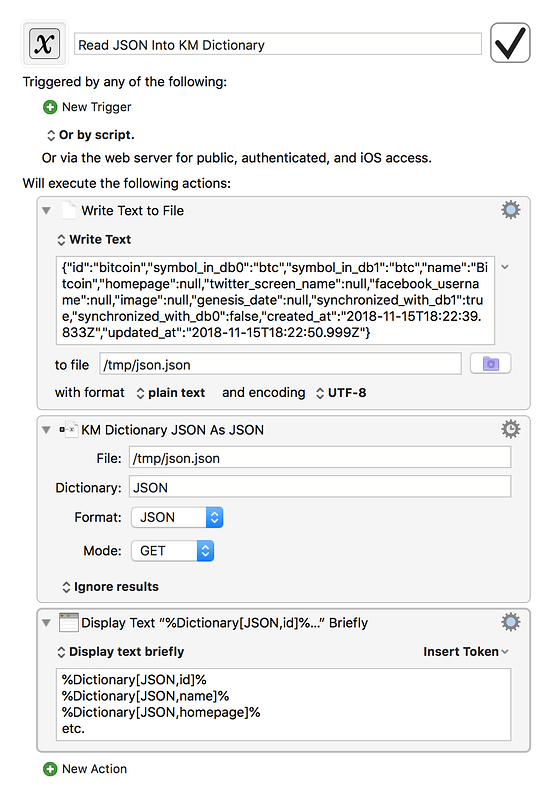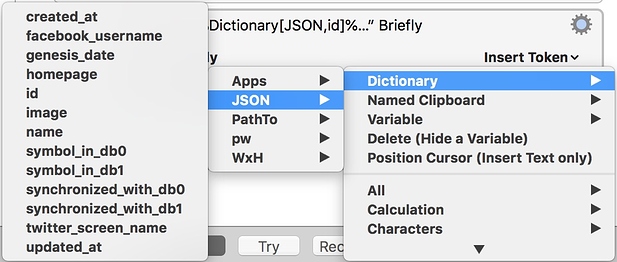CJK
4
I uploaded a plug-in action a while back that deals with this exact thing:
Although the name of the post cites "Plist", it actually handles both Plist and JSON. In your particular case, here's how it would work:
and here's the list of dictionary values that were created in KM by reading your JSON data:
3 Likes

